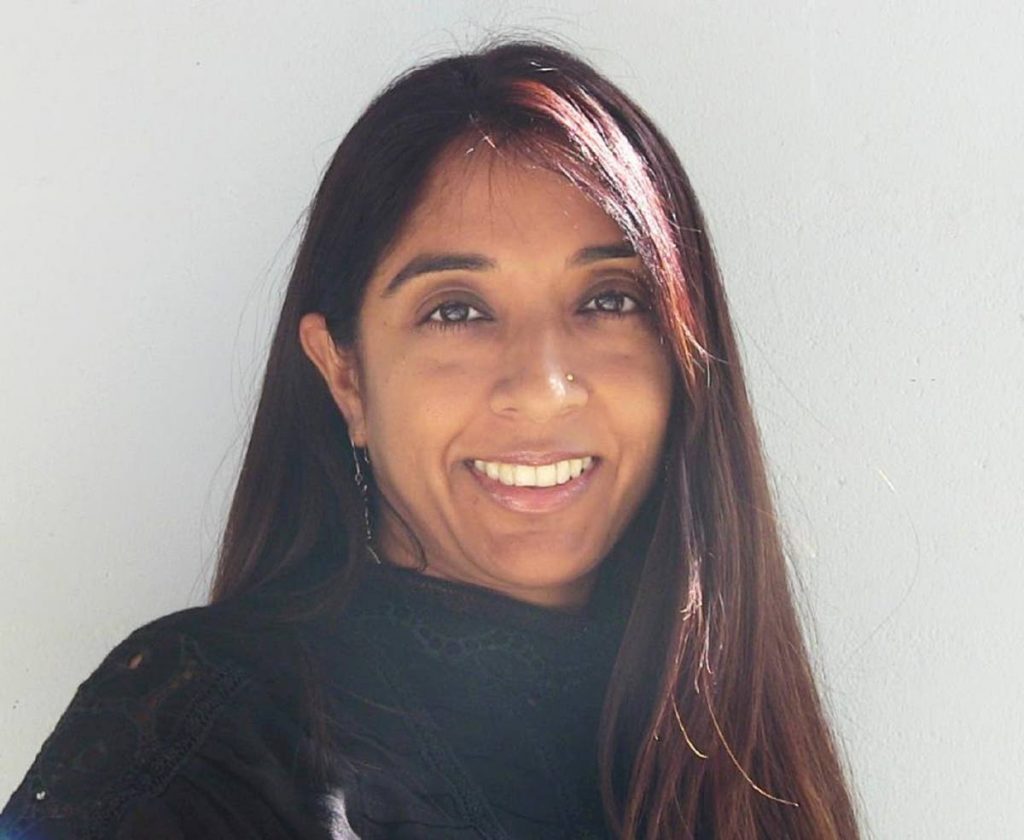Blowing in the wind

Diary of a mothering worker
Entry 288
GABRIELLE HOSEIN
BACK IN Trinidad, the brown grass in my backyard makes the threat of hurricanes seem far away, but islands up the Caribbean chain are already looking ahead. I didn’t even notice the clock ticking its way into official rainy season until a few days ago when I was up at midnight watching lightning repeatedly tear down through Havana’s cobalt sky.
The next day, amidst heavy, dusty heat, I listened to a panel on climate change at a Caribbean Studies conference. You wouldn’t believe the words speakers threw around: Infrastructurality. Disaster capitalism. The age of disaster. The politics of recovery.
They made it seem like one morning you wake up and you understand why indigenous people believed in Huracan, the god of wind, storms and lightning, because on some dark night you may be too powerless to do anything but pray.
Hurricanes decapitated Grenada’s houses, and almost decimated Barbuda and Dominica. They’ve submerged Havana and flooded roads in Kingston. Parts of Puerto Rico are still without restored electricity since last year’s Maria.
Disaster capitalism is corruptly or exploitatively profiting off natural disasters, strategically using them to land-grab or forcing privatisation in ways that make governments and populations dependent and pliable to foreign or corporate interests.
In Puerto Rico, people had to resist a push to privatise not only electricity, but also public schooling, and push back against reconstruction loans at interest rates that meant permanent debt.
Climate change is the region’s singular crisis, caused by the impact of a global economic order that continues to arrive in waves on our shores. It’s a repeating story of these islands.
The colonial encounter with the Caribbean was fuelled by enough profit motive and warped logic to fell thriving indigenous belief systems, landscapes, ways of life and nations by the millions. The effects were cataclysmic.
Today, scholars consider fossil capitalism a contemporary form of extreme and devastating economic violence. It wields power over our life and death. It collapses tourist capacity, agricultural output, public health provision and GDP overnight, along with developed country status. It’s also our own brand of development so we have a hand in our demise, and no plan for saving ourselves.
A three-hour rain floods from the Northern Range to the central plains, submerges Port of Spain, and drowns millions of dollars in crops. The best we can do is have strong, resilient infrastructure in terms of water provision, roads, buildings and the electric grid, but Trinidad and Tobago isn’t near ready.
If you are in a community prone to flooding, start hammering at the doors of your MP and regional corporation. Demand a plan that’s bigger than household compensation, which is increasingly going to be insufficient, and unable to protect us from what is considered a “tragedy of the commons.”
This is a tragedy that starts with our inability to protect the temperature balance in our shared planetary atmosphere and therefore to prevent worsening regional storms. It continues with our inability to protect our nations from the socialisation of losses resulting from privatisation of fossil exploitation gains. Finally, it ends with our failure to collectively decide what disaster and recovery measures are best for whole, interconnected communities.
We will not survive attack on commonly shared resources and realities through short-term, individualistic or selfish recovery strategies. For us, it’s not an “if,” but a “when,” once the global economic order continues as is.
Soon, our brown grass will turn brilliant green. Our Caribbean neighbours will be anxious about the eight hurricanes, four of them major, predicted. Besides climate change, there’s a natural climate pulse cycle that produced hurricanes in the 1950s and 1960s, and is back again.
Following Huracan’s sweep, the disaster isn’t just the damage that already happened, it’s also the recovery. Global media will descend to package stereotyped apocalyptic scenes of devastated citizens in need of rescue. What we need is resilient regional demand to stop all harm. After its first category 5 hurricane in recorded history, Dominican PM Roosevelt Skerrit described Dominica’s state with the words, “Eden in broken.”
This metaphor of Eden isn’t random. The whole point of the Caribbean in the Western narrative of modernity is to be a perfect paradise, to be beautiful and consumable and an escape from elsewhere.
That was the story of the region repeated for 500 years and it’s how we understand ourselves today: In Eden, under God’s eye, in fear of his wrath, wondering how much, this season, Huracan will weep with us along our tragic path.
motheringworker@gmail.com


Comments
"Blowing in the wind"